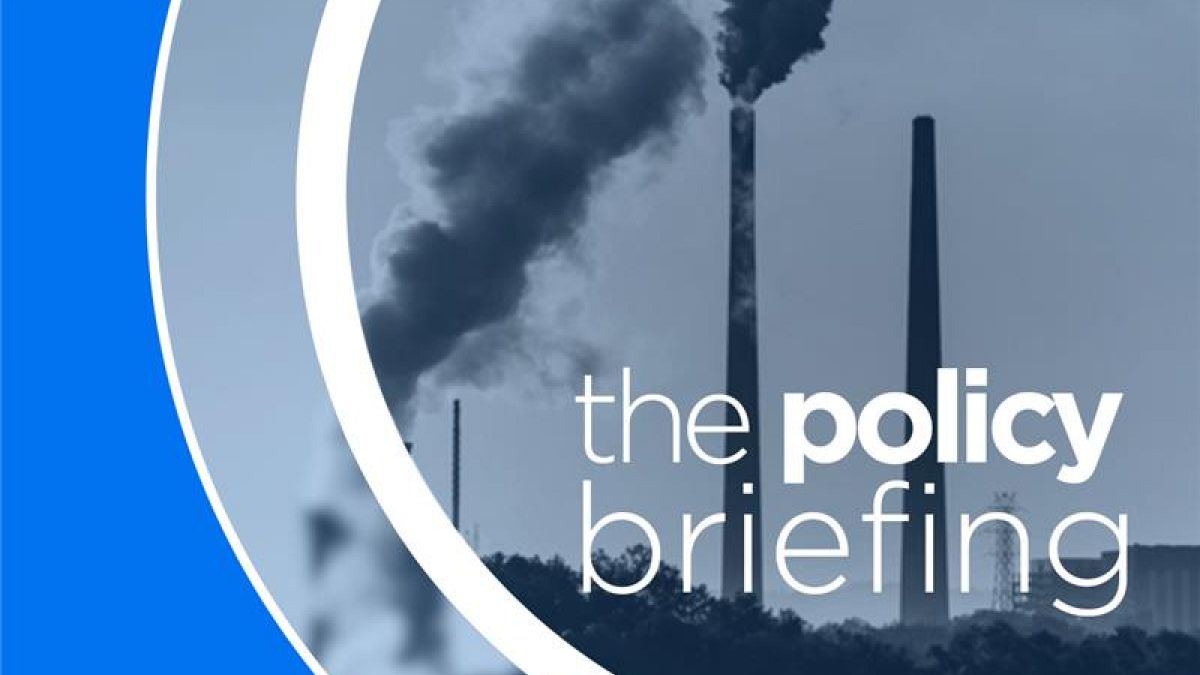Climate targets in focus, Newsletter
Key diary dates • Monday 25 March: Environment ministers to debate 2040 EU climate target in Brussels. • Tuesday March 26: Ministerial high level meeting in Brussels about the future of climate policy held by the Belgian Presidency of the Council of the EU. • Tuesday 26-Wednesday 27 March: High level conference in Brussels on […]


Key diary dates
• Monday 25 March: Environment ministers to debate 2040 EU climate target in Brussels.
• Tuesday March 26: Ministerial high level meeting in Brussels about the future of climate policy held by the Belgian Presidency of the Council of the EU.
• Tuesday 26-Wednesday 27 March: High level conference in Brussels on the future of the EU Health Union.
In spotlight
This week sees the issue of climate action back on the agenda in Brussels, with environment ministers due to debate in public today (25 March) the European Commission’s recommendation for a 2040 target to reduce net greenhouse gas emissions to 90% below 1990 levels.
The EU has agreed a 55% cut by the end of the current decade (we’re currently at 32.5%) and a huge effort is needed over the next few years. Willingness to countenance an equally, if not more challenging 2040 target will be a litmus test of the bloc’s commitment to achieving its goal of net-zero by 2050. The EU’s scientific advisory board has recommended 90% as the bare minimum needed.
It will be for the next European Commission to table a legislative proposal, so rather than haggling over the precise target at this stage, the Belgian EU Council presidency has invited diplomats to consider more broadly how Europe should transition towards climate neutrality. What will be the ‘important enabling conditions’ post-2030, and what economic sectors have the greatest potential to contribute?
The Environment Council summit comes just days after nearly half of EU members called for a revival of Europe’s – and, indeed, the world’s – nuclear power industry, with several prime ministers saying EU climate goals would be unreachable without it.
The same day, more than 100 corporate leaders called on policy makers to support a 90% target, in an open letter endorsed by, among others, IKEA, Coca Cola, Unilever, Google, and Europe’s nuclear power giant EDF.
This comes, of course, at a time when politicians find their minds inexorably wandering towards their voters, with EU elections in June (stick with us for all the latest info) – and Belgium (on the same day), Croatia, Lithuania and Austria also due to follow Portugal in choosing their next national governments this year.
Many are palpably reticent about making bold declarations of environmental intent, if not openly opposing the Green Deal as a campaign strategy – at the time of writing, the fate of the Nature Restoration Law hangs in the balance as governments cavil over a political deal struck with MEPs.
Ministerial deliberations on what is to be done about the climate will continue behind closed doors on Tuesday (26 March) when Belgium hosts a dedicated session with the theme ‘towards a climate neutral and resilient society in 2050’. This is intended to feed into the drafting of the EU’s next Strategic Agenda, which heads of government are expected to adopt in June, and which will set the bloc’s direction of political travel from 2024 to 2029.
Policy newsmakers
Nuclear fusion
Leaders of 11 member states backed a declaration in favour of nuclear power at a landmark Nuclear Energy Summit in Brussels last week (21 March). They included French President Emmanuel Macron who claims nuclear investments will help coal phase-outs and could be a quick fix to deal with the intermittency of renewables. The conference met with opposition from Greenpeace campaigners, including Lorelei Limousin, who protested outside the conference venue to dismiss as a “fairy tale” the idea that building more reactors would help slow global temperature rise.
Policy Poll
Roughly half of EU governments have signed a declaration calling for a global nuclear revival. Should European nuclear power plants:
Be decommissioned
Complement renewables
Receive a funding boost
Subscribe here to see the results of last week’s poll and stay informed on the latest EU policy developments with our weekly newsletter, “The Policy Briefing”. Your weekly insight on European rulemaking, policy issues, key events, and data trends.
Data brief
Commission eyes Biotech Act to boost bloc’s life science sector














